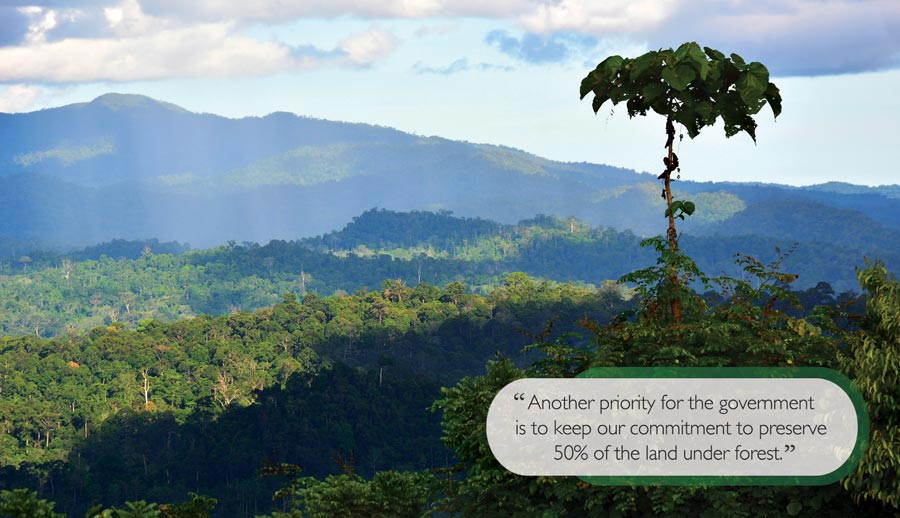



Commitment to sustainability
I am proud to say that Malaysia is a world leader in sustainable palm oil production, environmental protection and successfully using oil palm cultivation as a tool to uplift rural communities out of poverty. What we are doing is to provide you with a certified sustainable palm oil supply chain, governed by not only Malaysian laws but also by those prescribed through international standards.
Good agriculture practices honed through a century of plantation management expertise is the norm among Malaysian oil palm growers. For example, they adopt Integrated Pest Management, which encourages the use of non-chemical pest control methods to preserve the environment. These investments, as well as new technologies and planting techniques, are progressively improving plantation yields while avoiding unnecessary chemical and environmental stress on planted areas.
Government regulations underpin the sustainability efforts. Open burning is illegal in Malaysia; under the zero-burning practice, old oil palm stands are felled, chopped and left to decompose in the fields. This ensures an environment that is free of transboundary haze and smoke pollution, a major concern for environment and climate scientists.

The industry has also committed to reducing its overall carbon footprint. A major step being undertaken is the adoption of methane capture technology – 92 methane capture facilities have been completed and over 150 more are in the planning or construction stage. Such technology will help reduce greenhouse gas emissions and ensure that Malaysian palm oil meets stringent environmental and sustainability standards.
Another priority for the government is to keep our commitment to preserve 50% of the land under forest. The Malaysian palm oil industry is focused on improving productivity and yields, rather than expanding land under oil palm. However, sustainability is about more than just forests. The United Nations’ definition of sustainability is extremely clear: social and economic sustainability are on an equal plane with environmental sustainability.
So the government is also focused on supporting small farmers and their economic communities. This includes developing infrastructure, granting financial assistance where needed and, of course, protecting the ability of small farmers to earn a living.